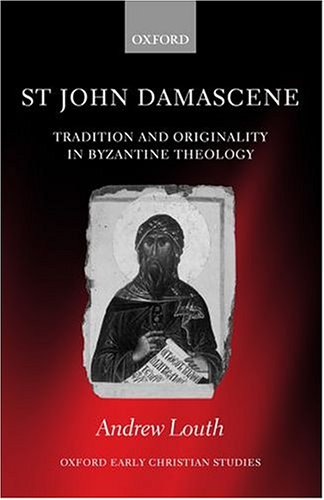

Most ebook files are in PDF format, so you can easily read them using various software such as Foxit Reader or directly on the Google Chrome browser.
Some ebook files are released by publishers in other formats such as .awz, .mobi, .epub, .fb2, etc. You may need to install specific software to read these formats on mobile/PC, such as Calibre.
Please read the tutorial at this link: https://ebookbell.com/faq
We offer FREE conversion to the popular formats you request; however, this may take some time. Therefore, right after payment, please email us, and we will try to provide the service as quickly as possible.
For some exceptional file formats or broken links (if any), please refrain from opening any disputes. Instead, email us first, and we will try to assist within a maximum of 6 hours.
EbookBell Team

4.8
14 reviews
ISBN 13: 9780199275274
Author: Andrew Louth
John Damascene, one-time senior civil servant in the Umayyad Arab Empire, became a monk near Jerusalem in the early years of the eighth century. He never set foot in the Byzantine Empire, yet his influence on Byzantine theology was ultimately determinative, and beyond that his theological work became a key resource for Western theology from Scholasticism to Romanticism. His searching criticism of Imperial Byzantine iconoclasm earned him harsh condemnation from the Byzantine iconoclasts. This is the first book to present an overall account of John's life and work; it makes use of recent scholarship about the transformation of the former Byzantine territories of the Middle East after the seventh-century Arab Conquest, and the new critical edition of the Damascene's prose works. It sets John's theological work in the context of the process of preserving, defining, defending, and also celebrating the Christian faith of the early synods of the Church that took place in the Palestinian monasteries during the first century of Arab rule. John's own contribution is explored in detail: his amazing three-part Fountain Head of Knowledge, which provided the logical tools for arguing theologically, outlined the multifarious forms of heresy, and set out with clarity and learning the fundamental doctrines of Orthodox Christianity; as well as his treatises against iconoclasm, his preaching, for which he was famous in his lifetime, and, the work for which he is most renowned in the Orthodox world, his sacred poetry that still graces the liturgy of the Orthodox Church. The life and thought of this subject of the Arab Caliphs, a Christian monk who thought of himself as a Byzantine, poses intriguing questions about identity in a rapidly changing world, and the deeply traditional nature of his presentation of Christian theology calls for reflection about the relationship between tradition and originality in theology.
PART I: Faith and Life
1. Life and Times
2. St John Damascene and Tradition
PART II: Faith and Logic
3. The Fountain Head of Knowledge: Nature and Development
4. Settling the Terms
(a) Elementary Introduction
(b) Dialectica
(c) ‘Christian’ Logical Handbooks
(d) John's Purpose
(e) The Central Role of hypostasis
5. Defining Error
(a) Heresiology and On Heresies
(b) Manichaeism
(c) Messalianism
(d) Islam
6. Defining the Faith
(a) On the Orthodox Faith
(b) God and the Trinity
(c) Creation and Human Kind
(d) The Incarnate Oikonomia
(e) Concluding Chapters
PART III: Faith and Images
7. Against the Iconoclasts
(a) The Three Treatises against those who Attack the Holy Icons
(b) The Florilegia and the Source of John's Arguments
(c) John's Doctrine of the Icon
(d) John's Place in Iconophile Theology
8. [Omitted] (‘flowing with gold’): John the Preacher
(a) The Nature of John's Preaching
(b) The Homily on the Transfiguration of the Lord
(c) The Homilies on the Dormition of the Mother of God
Interlude: Steps to the Altar: John the Monk at prayer
9. [Omitted] (‘sweetly speaking’): John the Poet
(a) Palestinian Monasticism and the Development of the Canon
(b) The Paschal Canon
(c) The Canon on the Transfiguration of the Lord
(d) The Canon on the Dormition of the Mother of God
st john damascene tradition and originality in byzantine theology
john damascene iconoclasm
john of damascus three treatises on the divine images
st john damascene writings
john damascus
st john of damascus on the trinity
Tags: Andrew Louth, Damascene, Originality